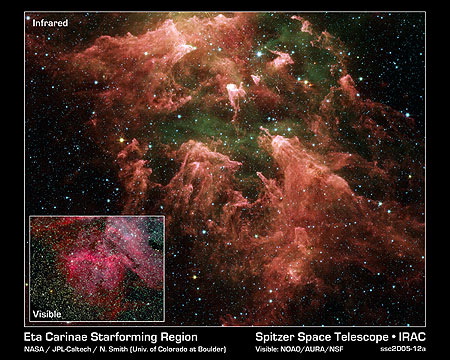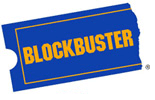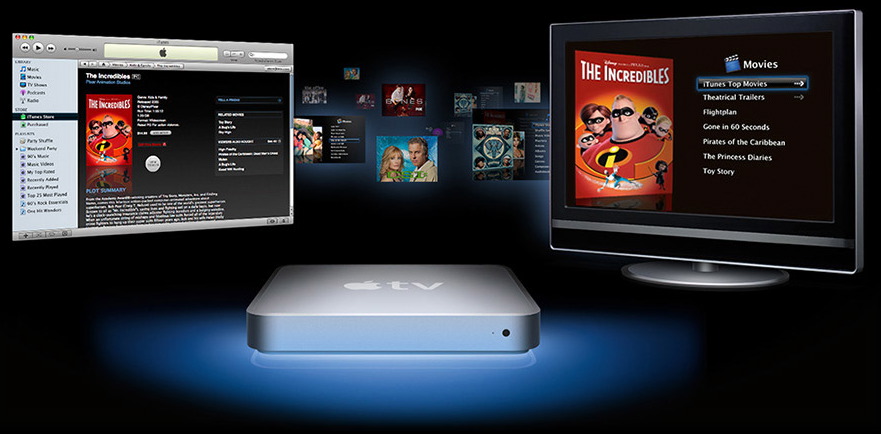 A story doing the rounds in a number of UK newspapers and blogs (Independent, Financial Times, The Mail on Sunday) is that ISPs are increasingly worried about the BBC’s iPlayer, which, were it to catch on, could place an unacceptable strain on their networks. The solution, says Tiscali chief executive, Mary Turner, is for the BBC to contribute to bandwidth costs. While other ISPs are talking about implementing ‘packet shaping’ as a way of penalizing iPlayer traffic so as to maintain speeds across the rest of the network. The result would be that, during peak times at least, the iPlayer could become painfully slow. Continue reading »
A story doing the rounds in a number of UK newspapers and blogs (Independent, Financial Times, The Mail on Sunday) is that ISPs are increasingly worried about the BBC’s iPlayer, which, were it to catch on, could place an unacceptable strain on their networks. The solution, says Tiscali chief executive, Mary Turner, is for the BBC to contribute to bandwidth costs. While other ISPs are talking about implementing ‘packet shaping’ as a way of penalizing iPlayer traffic so as to maintain speeds across the rest of the network. The result would be that, during peak times at least, the iPlayer could become painfully slow. Continue reading »
iPlayer is getting a "free ride" say UK ISPs
Live concert recordings on USB sticks
Note: this post is part of the R/WW Files on Online Music.
![[di]rec | Live concert recordings on USB sticks [di]rec | Live concert recordings on USB sticks](http://www.last100.com/wp-content/uploads/2007/08/direc.png)
In July, I blogged about a new company planning to sell recordings of concerts on USB sticks as you leave the venue. Since then I’ve actually found articles proposing a similar idea that dates back to 2004, although I believe it was a slow starter then. Nowadays, USB sticks have surpassed floppy disks and even CDs as the most popular way to physically move data around, plus they have a much higher capacity than they used to, and are more physically robust.
This is an excellent way of making money out of every live recording an artist makes — usually only one live recording is sold on through CDs/DVDs — and I think people would love to have a recording of the gig that they were actually at, rather than buy a recording through a record store of one random concert. The USB keys could be customised with artwork from the current tour, or contain video footage and photos from the show, which in-turn would make them more collectible. Continue reading »
Read/WriteWeb Files: Online Music
 Every week our sister blog, Read/WriteWeb, has a feature called Read/WriteWeb Files, in which they investigate a current hot topic or company in Web technology. This week they’re going to focus on Online Music, something that is becoming more and more prevelant as broadband speeds increase and social software functionality gets better. Here at last100, we’ll also be contributing to the Read/WriteWeb Files, with a series of posts on digital music services, devices and the state of the music industry. Our other sister blog, AltSearchEngines, will also be publishing a list of their Top 10 music search engines.
Every week our sister blog, Read/WriteWeb, has a feature called Read/WriteWeb Files, in which they investigate a current hot topic or company in Web technology. This week they’re going to focus on Online Music, something that is becoming more and more prevelant as broadband speeds increase and social software functionality gets better. Here at last100, we’ll also be contributing to the Read/WriteWeb Files, with a series of posts on digital music services, devices and the state of the music industry. Our other sister blog, AltSearchEngines, will also be publishing a list of their Top 10 music search engines.
Google shows why DRM is evil
 With Google’s decision to abandon paid-for video downloads — announced last Friday — the company also inadvertently delivered a “Sesame Street-style” lesson in why DRM is evil (notice the irony?). In an email sent out to Google Video customers, the company revealed that, as of August 15th, purchased videos will no longer playback, and instead users are being a given refund in the form of a Google Checkout “bonus”.
With Google’s decision to abandon paid-for video downloads — announced last Friday — the company also inadvertently delivered a “Sesame Street-style” lesson in why DRM is evil (notice the irony?). In an email sent out to Google Video customers, the company revealed that, as of August 15th, purchased videos will no longer playback, and instead users are being a given refund in the form of a Google Checkout “bonus”.
One of the inherit problems with DRM is that if a company goes bust or, presumably in Google’s case, decides to shut down the servers it uses to verify a legitimate purchase, then any DRM’d media is rendered useless.
You might be wondering how Google can get away with it, and I’ve been asking myself the same question. Two answers spring to mind. Firstly, the customer-base of Google Video paid-for downloads must be so small that the company doesn’t expect much of a backlash, which in-turn it hopes to have tempered through its offer of Google Checkout vouchers. Secondly, and more worryingly, it’s likely that the terms and conditions of Google Video already protected the company against such a scenario — where customers don’t actually “own” the media they pay for but instead license it in some way that allows for any future changes in service — including a DRM server blackout.
Whether or not this is legal — and I’m no lawyer — it’s a blatant abuse of trust, for which Google deserves to be held account.
(Also see Cory Doctorow’s take).
Weekly wrapup, 6 – 10 August 2007
Here’s a summary of the week’s digital lifestyle action on last100. Note that you can subscribe to the weekly wrapups, either via the special weekly wrapup RSS feed or by email.
Top digital lifestyle news
Kicking off the week, we reported on Amazon’s investment in AmieStreet.com. The social music site has a unique business model where all songs start off free and rise in price — up to 98 cents — the more they are purchased. Continue reading »
Videos of the week: all in HD
 While there is no high definition content to purchase from the iTunes Music Store yet, there are HD video podcasts that can be downloaded and viewed on various devices including PCs, video iPods, XBox 360, and the AppleTV. These, no doubt, are showing us what the future of downloadable HD content looks like.
While there is no high definition content to purchase from the iTunes Music Store yet, there are HD video podcasts that can be downloaded and viewed on various devices including PCs, video iPods, XBox 360, and the AppleTV. These, no doubt, are showing us what the future of downloadable HD content looks like.
All I can say is: Wow.
I chose to watch five HD video podcasts from the Featured Video Podcasts tab at the iTMS — “DiveFilm,” “Hidden Universe,” “Beautiful Places,” “Cool Hunting Video,” and “TRGtv”. These “programs” range from user-generated content to indie professionals. I’ve always heard from my HD buddies that the best HD has to offer is seen in nature shows, and these do not disappoint even as downloadable content.
Let me say it again: Wow. Continue reading »
Ford and Microsoft announce pricing for Sync
 Ford and Microsoft today announced the pricing information and other details for Ford Sync, an in-car connectivity solution jointly developed by the two companies. Sync could finally signal a home run for Microsoft’s efforts with automotive software, as Ford seems perpared to deploy Sync across its entire product line:
Ford and Microsoft today announced the pricing information and other details for Ford Sync, an in-car connectivity solution jointly developed by the two companies. Sync could finally signal a home run for Microsoft’s efforts with automotive software, as Ford seems perpared to deploy Sync across its entire product line:
Sync will be standard on Lincoln vehicles and widely available on Ford and Mercury vehicles. In most cases, Sync will be included as standard equipment on high-series models from Ford and Mercury – the Ford Edge Limited or Ford Focus SES, for example. On models where Sync is optional, it will be priced at $395.
Sync is based on Microsoft software, and enables the use of voice commands to control digital media players and Bluetooth-enabled mobile phones inside your vehicle. A few weeks ago we featured Microsoft Automotive in our list of the software giant’s digital lifestyle flops, citing a lack of tangible products as the main reason for making the list.
Sync is certainly a tangible product however, with wide deployment by Ford and a relatively consumer friendly price of just $395. Sync could turn out to be the pivotal automotive product that Microsoft has been searching for.
Ford expects to have Sync available on almost all Ford, Lincoln, and Mercury products within two years. The technology will be available on twelve new 2008 model-year vehicles to be launched by the end of the year, including the popular Ford Taurus, the Ford Explorer, and the new Ford Edge.
Blockbuster acquires movie download service Movielink
 Reuters reports that the U.S. movie rental chain Blockbuster has acquired the film download service, Movielink. While the terms of the deal are undisclosed, it’s thought that the purchase price is significantly less than the 50 million price tag that was banded about when negotiations began last March.
Reuters reports that the U.S. movie rental chain Blockbuster has acquired the film download service, Movielink. While the terms of the deal are undisclosed, it’s thought that the purchase price is significantly less than the 50 million price tag that was banded about when negotiations began last March.
The U.S.-only movie download store was launched in 2002 as a joint venture between Paramount, Sony, Universal, Warner Bros. and MGM — giving it access to major Hollywood content. With the acquisition, Blockbuster is inheriting those licensing agreements and a back catalog of more than 3,300 downloads. According to the report, Blockbuster will continue to operate Movielink as a separate brand, but will eventually make elements of the service available through Blockbuster.com.
Movielink is a standard Windows DRM affair, with movie downloads offered for both rental and to-own. Rentals can be stored for up to 30 days and expire 24 hours after the first viewing. In some cases, downloads can be played back on up to three PCs — depending on the original content-owners’ wishes — while others are limited to one PC.
Spanish broadcasters not happy with Zattoo
 Earlier in the week NewTeeVee published a short post referencing a story being carried in a Spanish newspaper, which suggested that a number of local broadcasters were considering taking legal action against the Internet TV startup, Zattoo.
Earlier in the week NewTeeVee published a short post referencing a story being carried in a Spanish newspaper, which suggested that a number of local broadcasters were considering taking legal action against the Internet TV startup, Zattoo.
Zattoo, is a peer-to-peer application that provides live streaming of traditional TV channels (see our review). The service is ad-supported, where an advertisement is displayed for 5 seconds every time a user switches channel, and this appears to be the potential cause of dispute, with some of Spain’s television stations unhappy that Zattoo is profiting from their content. Continue reading »
A collection of AppleTV resources
Also see: What’s next for the AppleTV?
 The AppleTV, obviously, is a different beast from the iPhone. But they do share one thing in common besides the Apple name: No sooner had the products hit the shelves at an Apple Store or were available online, hackers, developers, and sadist techies immediately started ripping them apart.
The AppleTV, obviously, is a different beast from the iPhone. But they do share one thing in common besides the Apple name: No sooner had the products hit the shelves at an Apple Store or were available online, hackers, developers, and sadist techies immediately started ripping them apart.
In the case of the AppleTV, hackers instantly looked under the hood to examine what version of OS X was running. They complained the 40 gig hard drive was too small, so they discovered how to upgrade to larger drives — voiding the warranty, of course. Since the AppleTV only plays content from the iTunes Music Store or what you prepare in the H.264 or MPEG-4 formats, hackers found ways to play DivX and other standards.
Just like I did for the iPhone, I’ve collected a variety of resources dedicated to the AppleTV, presented here with an added bit of commentary, where appropriate. As always, lists are never complete or perfect, so feel free to jump in and add your own favorites to the comment section. Everybody did a great job expanding the iPhone resources list. Continue reading »